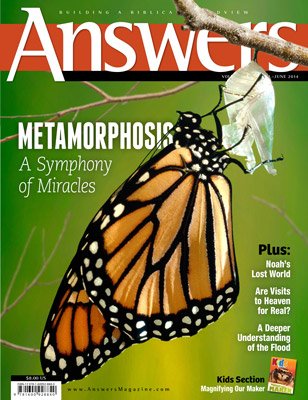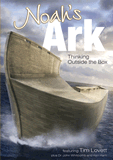Proclaim the Gospel with Hollywood’s Help
Impact
As each new Bible-based movie is announced, Christians speculate whether this time Hollywood will get it right.
Note: While secular entertainment sometimes affords us an opportunity to share the gospel, we were surprised to find out how offensive and antibiblical the Noah film is. This article is in no way intended to endorse that film, but simply to use it as the most recent example of a Bible-themed Hollywood movie. The article was written prior to its actual Hollywood release and, because of the film’s deeply offensive elements, we do not recommend attending or taking friends to attend. We have placed web articles on our main website to equip both Christians and non-Christians about the extremely pagan nature of this disturbing film.
As each new Bible-based movie is announced, Christians speculate whether this time Hollywood will get it right. When Hollywood inevitably gets it wrong, it’s tempting to nitpick—to recite a litany of errors to anyone who will listen. But don’t miss the opportunity to go deeper.
An outraged faultfinder won’t get far with people. Broadcasting our amazing Bible knowledge isn’t what people need. Instead, why not use the moment to highlight the movie’s bigger themes and turn the conversation to Jesus Christ?
Consider a current movie, Noah, as an example. Certainly you can find many differences between the screenplay and the historical account, but many elements open avenues to discuss Bible truth. The theme of God’s judgment to punish man’s corruption and violence is inescapable.
People love talking about movies and sharing their opinions. So get the conversation started. Once you start talking about these loftier themes, it’s easy to put them into the overall context of God’s plan for redemption: Did God really judge the world? Will He judge us again? Is there any escape?
The turning point in your conversation will be the movie’s positive lesson. The Flood narrative doesn’t end with judgment. In the movie trailer when asked, “Is this the end of everything?” Noah answers, “The beginning of everything.” What a beautiful statement of hope!
The central point of the biblical account is “God remembered Noah.” Our faithful Creator focused His attention on Noah and graciously kept His promise to end the Flood. (See “,” page 64.)
You can discuss how both judgment and redemption occur simultaneously. For example, the same fountains of the deep that brought judgment to the earth buoyed up the Ark, saving Noah and his family. The Bible depicts Christ as both the Judge of the world (Acts 17:31) and the fountain of living water (John 4:10–13). People love insightful comments that enrich their movie experience.
We often hope that a Bible adaptation will send moviegoers to the Bible for more background, so why not lead them there ourselves? Next time a new Bible blockbuster comes out, invite a friend to join you, and then stop for coffee or a snack to discuss the experience.
Take time to listen and draw out your friend’s reactions. Then use the opportunities God provides to gently point out the truth. Keep your eyes open—you’ll find lots of opportunities!
Answers Magazine
April – June 2014
A closer look at the Genesis Flood account reveals a beautifully written, unified narrative that points to one inspired author. The passage masterfully highlights one central message: “God remembered Noah.” Along with in-depth articles on the Flood, this issue shows biblical and historical evidences of Christ’s Resurrection, new discoveries about the miracle of a butterfly’s metamorphosis and much more!
Browse IssueRecommended Resources

Answers in Genesis is an apologetics ministry, dedicated to helping Christians defend their faith and proclaim the good news of Jesus Christ.
- Customer Service 800.778.3390
- Available Monday–Friday | 9 AM–5 PM ET
- © 2026 Answers in Genesis




